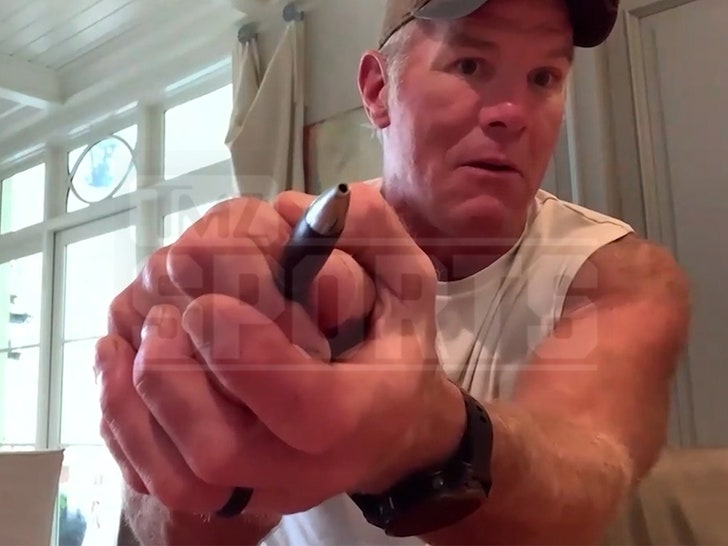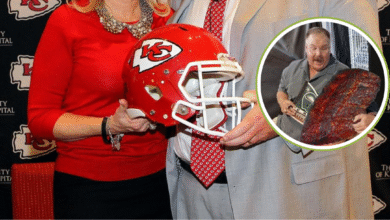Head Injuries and Parkinson’s: Brett Favre Speaks on Connection and His Ongoing Struggle
OPINION: This article may contain commentary which reflects the author's opinion.
In an emotional interview with TMZ Sports in August 2024, NFL legend Brett Favre revealed his Parkinson’s disease diagnosis, which was publicly disclosed on September 24, 2024. The former Green Bay Packers quarterback shared the symptoms he noticed in the months leading up to his diagnosis and how they gradually affected his daily life. Favre’s openness about his health struggles provides valuable insight into the realities of living with a neurological disorder and the toll it takes on both the body and the mind.
The Initial Signs: A Year of Uncertainty
For Brett Favre, the journey toward his Parkinson’s diagnosis was not sudden. He began experiencing symptoms that he initially dismissed as simple signs of aging or overuse from his long and strenuous football career. The first noticeable change occurred in his right arm, a symptom that became increasingly difficult to ignore over time. Favre described how his right arm would “get stuck” at a 90-degree angle next to his body. Despite having normal strength in the arm, he found it difficult to move it freely and fluidly.
“Even simple tasks like using a screwdriver became a struggle,” Favre explained. “I had to use my left hand to help my right hand, which was very strange because I’m right-handed.” The inability to control his right arm with the same ease he once had was troubling, but he continued to push through it. At first, he brushed it off, thinking it was just a temporary issue that would resolve itself.
However, as the months passed, the symptoms worsened, and Favre started noticing additional difficulties in everyday activities. One such challenge was his trouble when putting on shirts or jackets. “I couldn’t get my arm into the sleeve properly,” Favre recalled. “It felt like my arm didn’t want to cooperate, almost like I couldn’t control the motion of it at all.” These experiences left him frustrated, but it wasn’t until the symptoms persisted for over a year that Favre decided to seek medical advice.
The Diagnosis: Confirming Parkinson’s Disease
By January 2024, after a year of enduring symptoms that refused to improve, Brett Favre made the decision to consult a team of specialists. On January 3, 2024, following consultations with five different experts, he received the diagnosis that would forever change his life: Parkinson’s disease. The diagnosis confirmed his fears but also brought clarity to his years of unexplained struggles.
Parkinson’s disease is a progressive neurodegenerative disorder that affects movement, causing tremors, muscle rigidity, slowness of movement, and balance issues. It is widely known for its impact on motor skills, but its symptoms can vary significantly between individuals. Favre acknowledged that while the disease was affecting him physically, he was still coming to terms with the emotional implications.
Possible Links to Head Injuries
Favre, who had an illustrious football career with numerous accolades, admitted that he had sustained many concussions and head injuries over the course of his time in the NFL. “I’ve probably had hundreds, maybe thousands, of concussions in my career,” Favre said. “It’s part of the game, and we didn’t really think much about it back then.” The connection between head trauma and neurological conditions like Parkinson’s has been a topic of increasing interest, particularly among former professional athletes.
Although Favre’s doctors did not directly link his condition to a specific head injury, they suggested that repeated concussions could be a contributing factor to the development of Parkinson’s. The lack of a family history of the disease made this explanation seem plausible. “The doctors believe that because I don’t have any family history of Parkinson’s, it could be linked to the repeated head trauma I endured while playing,” Favre said. This connection between football-related injuries and long-term brain health remains a critical area of research, as more athletes from contact sports like football, boxing, and hockey are being diagnosed with neurodegenerative diseases later in life.

Living with Parkinson’s: Facing the Challenges Head-On
While Brett Favre is still coming to terms with his diagnosis, he remains committed to raising awareness about Parkinson’s disease and the challenges it presents. His decision to speak publicly about his health was motivated by his desire to help others who might be struggling in silence. “Parkinson’s is not an easy disease to live with, but it’s something I’m learning to cope with every day,” Favre shared. “It’s important to talk about it, to let people know they’re not alone in this fight.”
Despite the challenges, Favre has maintained an optimistic outlook. He continues to stay active and engaged in his community, using his platform to inspire others. “I know I’ve got a long road ahead, but I’m not going to let this define me,” he said



